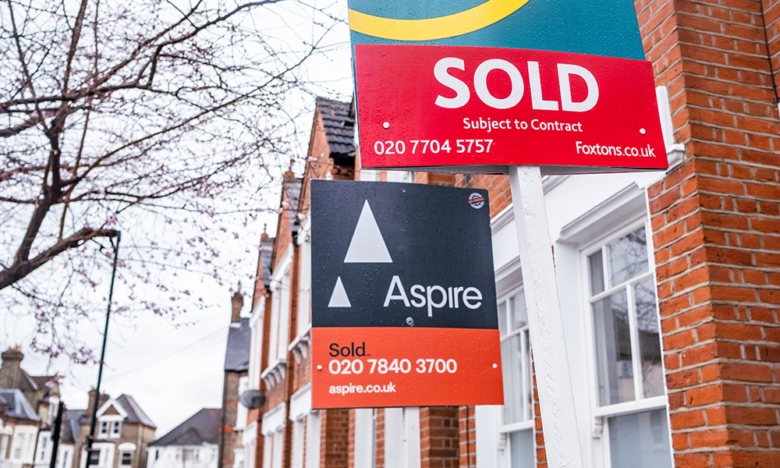
Selling your first home – what do you need to know?
When it comes to selling your home, there’s a lot to think about. Not only will you be putting effort into making sure your property looks its best to attract the most interest, you’ll also probably be looking for somewhere new to live, which can mean double the stress. So, what are the key considerations when selling your first home and how can you be prepared in order to make the process run as smoothly as possible?
1. Get your finances in order
As with most aspects of buying and selling properties, having your finances in place and being clear on key costs will be essential. If you’re looking to move to a more expensive property, it’s worth speaking to lenders before you start viewings to confirm how much you can borrow. If you’re still within your existing mortgage term on your current property also check if there are any fees for porting it to a new property or any charges for early repayment. Be aware that porting – that is transferring your existing mortgage to your new property – may cost you more than remortgaging so consider all the options before committing.
2. Make your home looks its best
Once you know the numbers stack up and you’re definitely going to move, it’s time to make sure your home looks its best to appeal to potential buyers. This could be as simple as making sure the property is clean, tidy and free from clutter so potential buyers can imagine how they would live in the space. If you have gardens or outdoor areas, make sure these also get some attention, so mow any lawns, check gates and fences are in good condition and clean the windows.
If when you’re doing this you notice any areas that are looking a bit run down, now’s also the time to invest in some home improvements. A fresh coat of paint or a refresh of kitchen units can make a huge difference, but if you’re considering bigger jobs, such as installing a new kitchen or bathroom, speak to your estate agent to see if they think it’s worth spending the money. If there are any issues with the property that you think could concern buyers, you could also consider getting a survey so you have an independent report explaining the extent of any issues and how much they should cost to rectify.
3. Get your property valued
Next up, you’ll need to have your property valued so you can decide on a fair asking price. It’s always a good idea to invite a few estate agents around to share their insight here. Look for local agents who have a track record of selling similar properties as these will likely have an accurate idea of how much you should ask for to ensure you attract a lot of interest but don’t end up selling for less than you should. Estate agent’s valuations may well vary so it’s worth doing some research of your own too – you should be able to find information on recent local selling prices online – and ask for specifics as to how each agent reached their figure. You could also opt for a market valuation from a RICS qualified valuer. This will give you an accurate, impartial value so you can be clear on how much you should get for your home. Also, don’t necessarily go with the agent that suggests the highest value – it may take you longer to sell if the price is too high.
4. Set an asking price
Once you’ve heard from the estate agents and explored your local market, it’s time to set your asking price. Remember, while agents can advise, the final decision is down to you but again, be sensible as a high price can deter viewers. If the agents came back with very different valuations, taking an average is usually a good starting point. Prospective buyers can offer less (or more if the property proves particularly popular), but the focus should be on encouraging people to view your home.
5. Instruct an estate agent
While you’ll probably end up instructing one of the agents who valued your property to manage the sale, there are other routes you can go down, including online only estate agents, a private sale or even an auction. All have their own pros and cons depending on how quickly you want to sell, how much you want for the property and how much you’re willing to pay in fees.
Even if you opt for the more traditional estate agent route, be sure to compare fees – and don’t be afraid to haggle – as well as tie in and notice periods. Once you’ve made your choice, you’ll be expected to sign a contract instructing the solicitor. This will lay out the terms under which they’ll sell your home. The agent will also send a photographer round to get professional pictures for the listing and arrange for a floorplan to be created. Again, it’s worth preparing for the photographer by decluttering and making sure the property is clean and well presented inside and out.
6. Prepare for viewings
Once the property details have been circulated, it hopefully won’t be long before the viewings begin. If you’re using a high street estate agent, they will usually offer to conduct the viewings for you. This is often a good choice as it allows prospective buyers to view the property in detail and ask any questions they may have. Try to be out of the house when you have a viewing so they can explore in comfort.
If you’re hosting the viewings yourself, think about the best order to show the rooms and any features you specifically want to highlight. If you can, do a practice run so that you’re fully prepared.
7. Choose a solicitor
As you start to generate interest in the property, look into options for hiring a solicitor, or conveyancer. They will handle the legal side of the sale so it’s important that you find someone who is knowledgeable, responsive and reliable. Having someone in place before you accept an offer can also speed up what can be a lengthy process, while demonstrating to the buyer that you’re serious about selling.
8. Offers on your property
Hopefully it’s then only a matter of time before you start to receive offers on your home. While the amount being offered will of course be the biggest factor impacting which you choose to accept, if you have multiple offers on the table, ask your agent to delve a bit deeper. For example, if you’re lucky enough to have an offer from a chain-free cash buyer, this will always be a good option as the sale won’t be impacted by chains falling through or issues with mortgage offers. A buyer who has sold and exchanged on their property or a first-time buyer who doesn’t have the complexity of a chain to worry about would also be high up the list, although be aware that first-time buyers may be reliant on a large mortgage offer.
If, however, you’re not seeing much interest speak to your estate agent to see what they think the problem is. It may be that the price is too high or that demand is currently low in your area. It could also be that the agent simply isn’t the right fit for your property, in which case you will be able to switch within the terms of your contract.
Once an offer has been made, you can choose to accept, decline or negotiate on it. This will depend on factors such as if the offer means you can afford your next home, if you think it’s fair, how many other interested parties there are and how quickly you need to sell. Ultimately it’s your decision to make, but your agent will be on hand to share their insight if you need it.
9. Exchange and completion
Once you’ve accepted an offer it’s over to your solicitor to ensure all the legal aspects of buying a house are covered off. After this has been done, you’ll exchange contracts and the buyer will pay the deposit. It’s only at this point that the sale becomes legally binding. There is then usually at least a week until the sale completes at which point you will have officially sold your home and you’ll need to move out and give your key to the estate agent for them to pass on to the buyer. If you’re buying a property too, it’s best to complete your purchase on the same day as you complete your sale, that way you can move all your belongings from your old home to your new one without needing to put them in storage.
Novello offers timely, accurate and cost-effective building surveys carried out by expert, impartial surveyors. To find out more, contact us or arrange a free quotation now.

